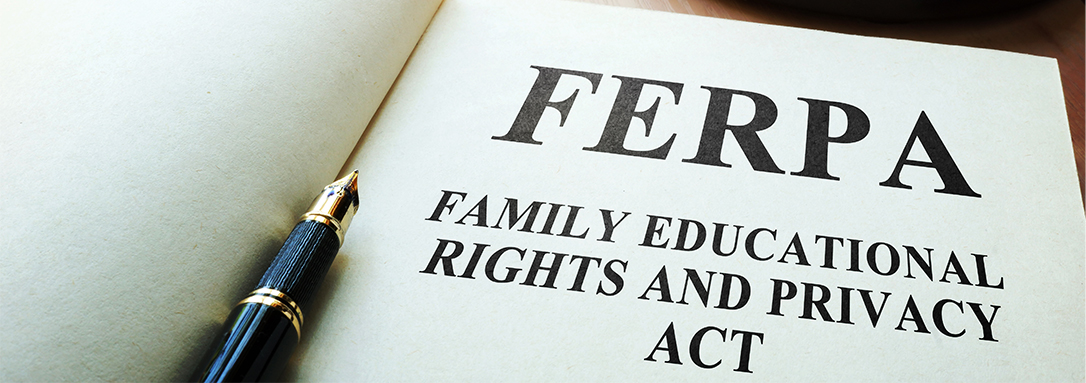The Family Educational Rights and Privacy Act (FERPA) (20 USC § 1232g; 34 CFR Part 99) is a federal law that protects the privacy of student education records. The law applies to all schools that require funds under an applicable program of the United States Department of Education.
FERPA gives parents certain rights regarding their child’s educational records. These rights transfer to the student when he reaches the age of 18 or attends a school beyond the secondary level. Students to whom the rights have transferred are “eligible students”.
- Parents or eligible students have the right to inspect and review the student’s education records maintained by the school. Schools are not required to provide copies of the records unless, for reasons such as a great distance, it is impossible for parents or eligible students to review the records. Schools may charge a fee for copies.
- Parents or eligible students have the right to request that a school correct the records they deem inaccurate or misleading. If the school decides not to modify the record, the parent or eligible student has the right to a formal hearing. After the hearing, if the school still decides not to amend the record, the parent or eligible student has the right to post a statement with the record that establishes their view of the contested information.
- In general, schools must have written permission from the parent or eligible student to release any information from a student’s educational record. However, FERPA allows schools to disclose those records, without consent, to the following parties or under the following conditions (34 CFR § 99.31):
-
- School officials with a legitimate educational interest;
- Other schools to which a student transfers;
- Officials specified for audit or evaluation purposes;
- Related parties in connection with financial aid to a student;
- Organizations conducting certain studies for or on behalf of the school;
- Accreditation organizations;
- To comply with a court order or lawfully issued subpoena;
- Officials affected in cases of health and safety emergencies; and
- State and local authorities, within a juvenile justice system, in accordance with specific state law.
Schools may disclose, without consent, “directory” information, such as a student’s name, address, telephone number, date and place of birth, honors and awards, and dates of attendance. However, schools must inform parents and eligible students of directory information and allow reasonable time for parents and eligible students to request that the school not release directory information about them.
To file a complaint with the Department of Education, the parent or eligible student may direct their complaint to the Office of Family Policy Compliance, US Department of Education, 400 Maryland Avenue, SW, Washington, DC 20202.

